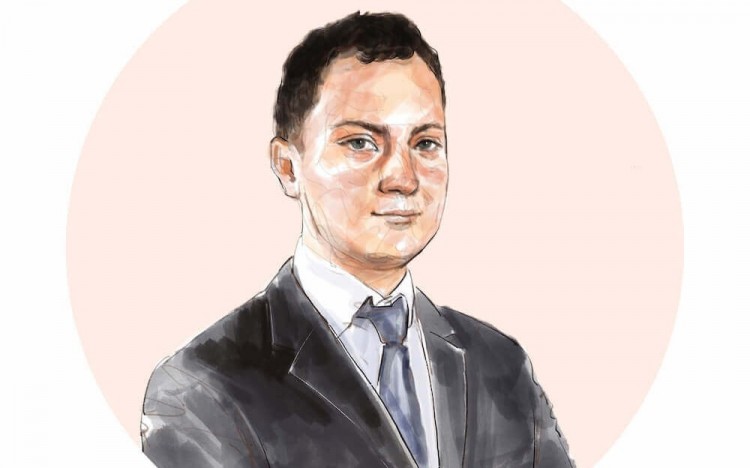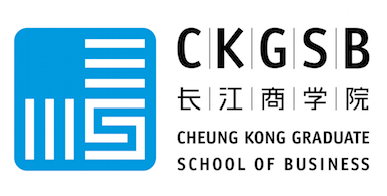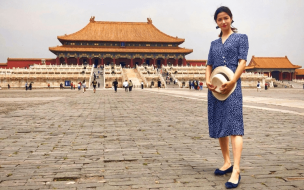Kamil Kmec’s passport has a stamp on almost every page. When he talks about travel, his face lights up and a wide smile spreads from ear to ear.
Even as a child growing up in Soviet-era Czechoslovakia, Kamil used to travel outside the country, across Eastern Europe. When studying business at university—after his country opened up to the West—he visited Paris and Naples, and he spent a summer working thousands of miles from home in a national park in Alaska.
Kamil’s visited countries in four continents. Still, when he arrived in Beijing for his MBA, China was something new.
“If you are looking for your differentiating factor, then China is the place to go,” Kamil explains. “If you’re looking at MBA programs in China, then you have a top candidate in CKGSB.”
Action
Born in a small countryside town an hour’s drive from Kosice, in modern-day Slovakia, Kamil’s mother was the finance manager of a local business, while his father was a history teacher at the local secondary school.
As a teacher, Kamil’s father was well-respected and well-paid in Soviet times, a cultured man with a global outlook. It was he who led the family’s trips out of the country, even in the more isolated Soviet times.
But after the Velvet Revolution ended Communist rule in Czechoslovakia in 1989, and Slovakia became an independent state in 1993, Kamil’s parents had to work hard to get by.
“There was a significant period of change,” Kamil recalls. “Teachers were no longer regarded or paid as highly as they once were.
“But this change had a big influence on me. It pushed me to educate myself and get out of my small town. I got some business acumen from my mum, and my dad inspired me to ‘go global’.”
After university, Kamil, aged 23, got a job at Accenture and jumped into a high-octane career as a management consultant. It was the perfect path for him. Based in Bratislava, he travelled, working on big projects across Europe.
“Consulting is great for someone who likes to be in the thick of the action,” he says. “I always felt like I was on a mission—with the expectation to deliver within a week’s time, a few days, or 24 hours— and that’s what drove me. I learned by doing, and that shaped my professional personality.”
Kamil loved his job. But following the financial crisis, Accenture switched its focus to IT and Kamil was increasingly stuck in Slovakia. He moved to London, taking up a job at EDF Energy. But he soon felt his work became monotonous again. He was determined to broaden his horizons and try something new.
Kamil first came across CKGSB at a careers fair in London. “As I found out more about the school, I understood how it’s more entrepreneurial,” he says, “It’s more about how we can create new business than about how organizations work.
“I wanted to build a foothold in China because I knew that, one day, it could become one of my key selling points.”
Going global
Kamil arrived China for the first time with his wife Janka, a hometown sweetheart whom he met while working for Accenture. He, Janka, and a Chinese classmate, shared an apartment in student accommodations in downtown Beijing.
“I had China somewhere in my mind as this huge, ancient civilization—like Egypt or the Roman Empire,” Kamil recalls. “I remember arriving at the hotel next to the school in the early morning, and I was immediately struck by the scale of the city.
“Unless you work with China, you don’t necessarily understand it—that was the case with me before CKGSB. Now, I view China as a massive, integral power that will shape the future of the world,” he continues.
“I knew that having the opportunity to connect with that influence, to build a network of friends, classmates, and potential business contacts in China, was going to be extremely beneficial.”
China is the world’s largest automotive market, accounting for around 30% of global car sales. From 2016 to 2017, Jaguar Land Rover’s China sales rose by over 30% to 119,000 cars out of 583,000 sold globally—a record sales year. The British carmaker opened its first engine plant outside the UK in China in July 2017.
After Kamil completed his MBA, Jaguar Land Rover had just signed an agreement to build a $1 billion manufacturing facility in Slovakia, and Kamil—a native Slovakian with experience in the UK and China—was hired to manage the logistics of the expansion.
“My China experience was definitely a factor in me landing this job, because China knowledge is especially valued in the auto industry,” he says. “My role now is about making investment in Slovakia succeed, while raising the profile of Jaguar Land Rover in Slovakia. My aspiration is to grow in this position and become a lead investment program manager for any investment coming to Europe.
“We’re seeing more and more Chinese companies going global and investing in various parts of the world,” Kamil explains. “I aim to use my MBA experience, together with my experience at Jaguar Land Rover and my consulting background, to help Chinese companies set up their operations in Europe.”
People person
Kamil’s post-MBA adventure is only just beginning. Already, he’s met countless contacts, colleagues, and friends along the way.
In Beijing, he held a traditional Slovakian Christmas dinner for his MBA classmates, complete with Slovakian dumplings, cabbage soup, and schnitzel – key ingredients imported from home.
He met up with a CKGSB classmate in Italy last summer. And his friend Frank, a Tibetan art collector he met on the MBA’s Shanghai module, has just come to visit him back home.
“I like to travel. I like to have friends in various continents. I like to work globally and meet people all over the world,” Kamil continues. “I wanted to go more global, and China was the perfect opportunity.”








